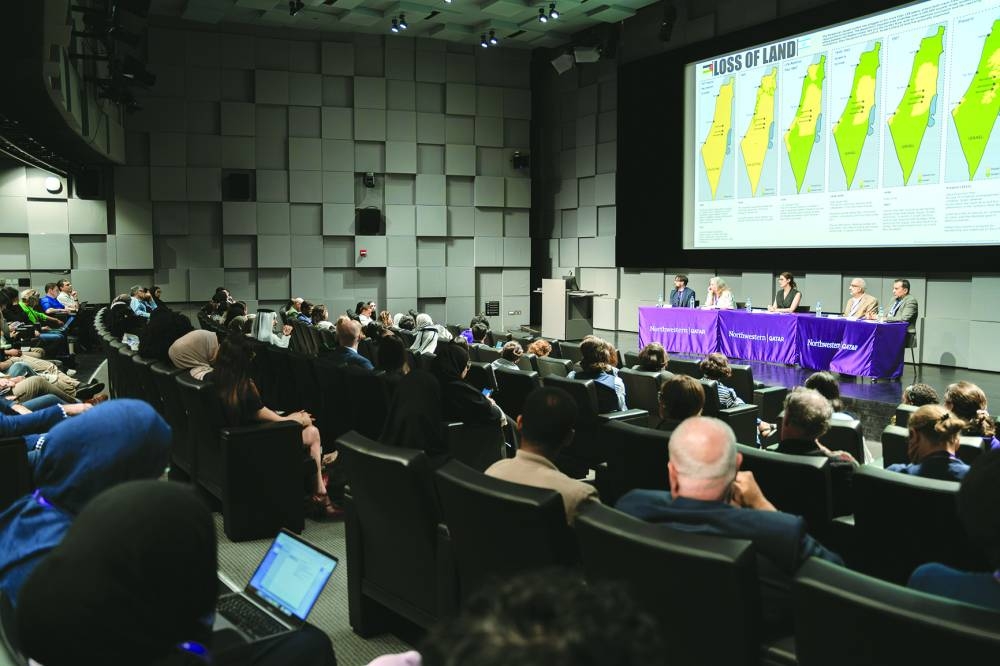With the ongoing war in Gaza dominating media headlines, a Northwestern University in Qatar ( NU-Q) panel examined the media coverage during an event, "Palestine in Wartime Media Narratives,” co-hosted by the Journalism and Strategic Communication Programme and the Liberal Arts Programme.
Joining as panelists were NU-Q professors, Khaled al-Hroub, Zeina Awad, Marda Dunsky, and Ibrahim Abusharif, who discussed Palestinians’ portrayal in media narratives in a conversation moderated by Prof Eddy Borges-Rey.
The event began with al-Hroub shedding light on the untold stories of the war in Gaza and the Western media’s approach to coverage. “The idea nowadays in this war is to have the Western media camera frozen on one event, that is October 7th,” said al-Hroub. “So many stories on a daily basis that I read from friends, the details of the stories are so horrifying, and these stories you cannot read, you cannot see on mainstream media.”
For Awad, mainstream media’s historical portrayal of Palestinians continues to play a role in current coverage. "In many ways, the Palestinians are often seen as a subject or topics but rarely people with human emotions and agency," said Awad, emphasising that the everyday lives of Palestinians and the challenges they face are rarely depicted in mainstream media.
Dunsky noted that in coverage of the war and also of the Israel-Palestine conflict in general, “US policy and media impose this false equivalence between Israel and the Palestinians as if there is no power disparity between them.” For Dunsky, such decontextualised reporting exacerbates the dehumanization of Palestinians, because critical facts are omitted.
In examining the origins of prejudice, missing contexts, and what he called “toxicity” in media narratives, Abusharif, traced the ideological roots of these narratives as far back as medieval religious polemics aimed to counter Muslim Spain and, later, the Ottomans.
According to Abusharif, colonial narratives “picked up on the polemics and packaged them in the rhetoric and practice of narrative construction.” These colonial narratives, he argued, had seeped into journalism, shaping the way the Global South was and is currently “portrayed in the Western media and imaginations.”

Panel discussion on 'Palestine in Wartime Media Narratives.'
